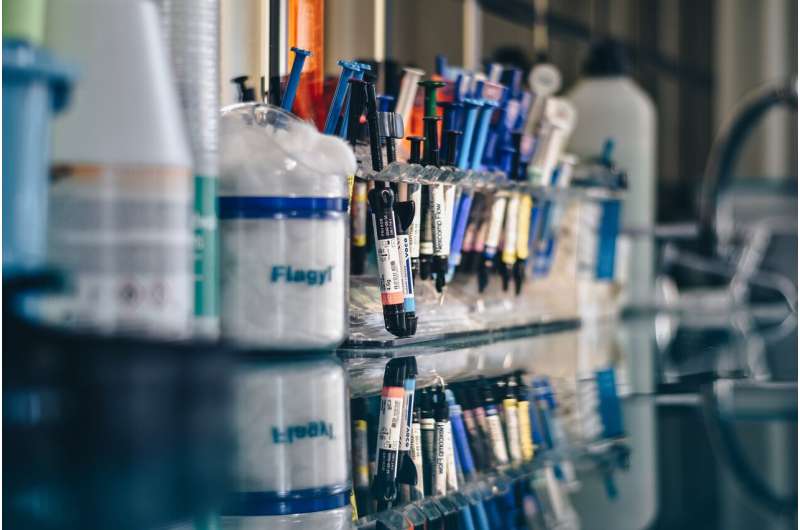Credit: Unsplash/CC0 Public Domain
Measles is one of the most contagious airborne viruses worldwide. There is a cheap and effective vaccine available, but measles is common in developing countries and sporadic outbreaks also occur in developed countries, mainly due to unvaccinated people. New research published in Advanced functional materials describes a new point-of-care biosensing device capable of detecting measles virions in human saliva, which could aid efforts to control viral spread.
Experiments validated the accuracy of the lab-on-a-chip device, which is smaller than a $1 cent coin or a US quarter. The device can provide a convenient platform for measles diagnosis and serve as a guideline for designing novel microfluidic biosensing systems.
“Our technology demonstrated for the first time the synergistic performance of several surface acoustic wave-based microdevices on the same chip, in the context of lab-on-a-chip biosensing. In this way, we have been able to dramatically improve the detection limit of our sensors, potentially enabling early diagnostic applications at the point of care,” said senior author Marco Cecchini, Ph.D., senior investigator of the Nanoscience Institute of the Italian National Research Council, and CTO and co-founder of Intelligent acoustic systems in Italy.
Surface-Acoustic-Wave (SAW)-induced mixing improves virus detection: application to measles detection in whole human saliva with a SAW Lab-on-a-chip, Advanced functional materials (2022). DOI: 10.1002/adfm.202201958
Quote: Coin-sized device detects measles virus in saliva (2022, July 7) retrieved July 7, 2022 from https://phys.org/news/2022-07-coin-sized-device-measles-virus-saliva. html
This document is copyrighted. Other than fair dealing for personal study or research, nothing may be reproduced without written permission. The content is provided for informational purposes only.

